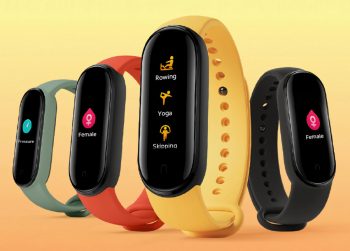
Best fitness trackers in 2020
Wear OS is showing signs of life again in 2020 with the Qualcomm Snapdragon Wear 4100 platform possibly delivering the performance and efficiency that has been missing, but for many of us, a fitness tracker is still the better wearable option to pair with our Android phones. Fitness trackers can deliver the features most people are looking for from their wearable like basic notifications and of course fitness tracking at a more affordable price and with considerably better battery life.
Let’s take a look at some of the top options in the market today, regardless of your goals with a wearable there is likely one on this list that will get the job done.
Samsung offers yet another take on this slim wearable design with its Galaxy Fit, with a couple of additional tricks up its sleeve to separate it from the others. Available at around $99 the Galaxy Fit delivers a solid feature set, but you are paying up slightly for the brand and overall fit and finish of the wearable.
The Galaxy Fit is available in either all black or silver with a white band and while there aren’t quite as many options as for Mi Band 5 or Inspire HR, you can find several bands for around $10-$20 that can dress the Galaxy Fit up or add a bit more color to it.
The Galaxy Fit has a full-color AMOLED rectangular touchscreen display with the bands connecting to the core unit at the top and bottom as with the Inspire HR. The screen is always on, so none of the frustration of raising your wrist to see a blank screen and it still offers up to 7 days of battery life.
One nice extra is that you can not only receive call, text message and app notifications, but you can also create custom quick replies to send back if you can’t get your phone out immediately.
The Galaxy Fit is waterproof up to 50 meters and can track up to 90 activities and like the Fitbit Inspire HR it will automatically detect a number of common exercises so if you are just going out for a jog you don’t need to worry about triggering the workout on your Fit first.
The Galaxy Fit offers reliable heart rate monitoring and sleep tracking as well, again the small size and long battery life lend itself well to keeping the wearable on and benefiting from the data that is presented to you in the Samsung Health app.
While it doesn’t quite live up to the standards of the Fitbit app as far as a whole health tracking option, the Samsung Health app is also quite robust with support for food and water intake along and actually surpasses Fitbit in the fitness data department with features like speed, pace and cadence, and heart rate that may be of value to you depending on your fitness goals.